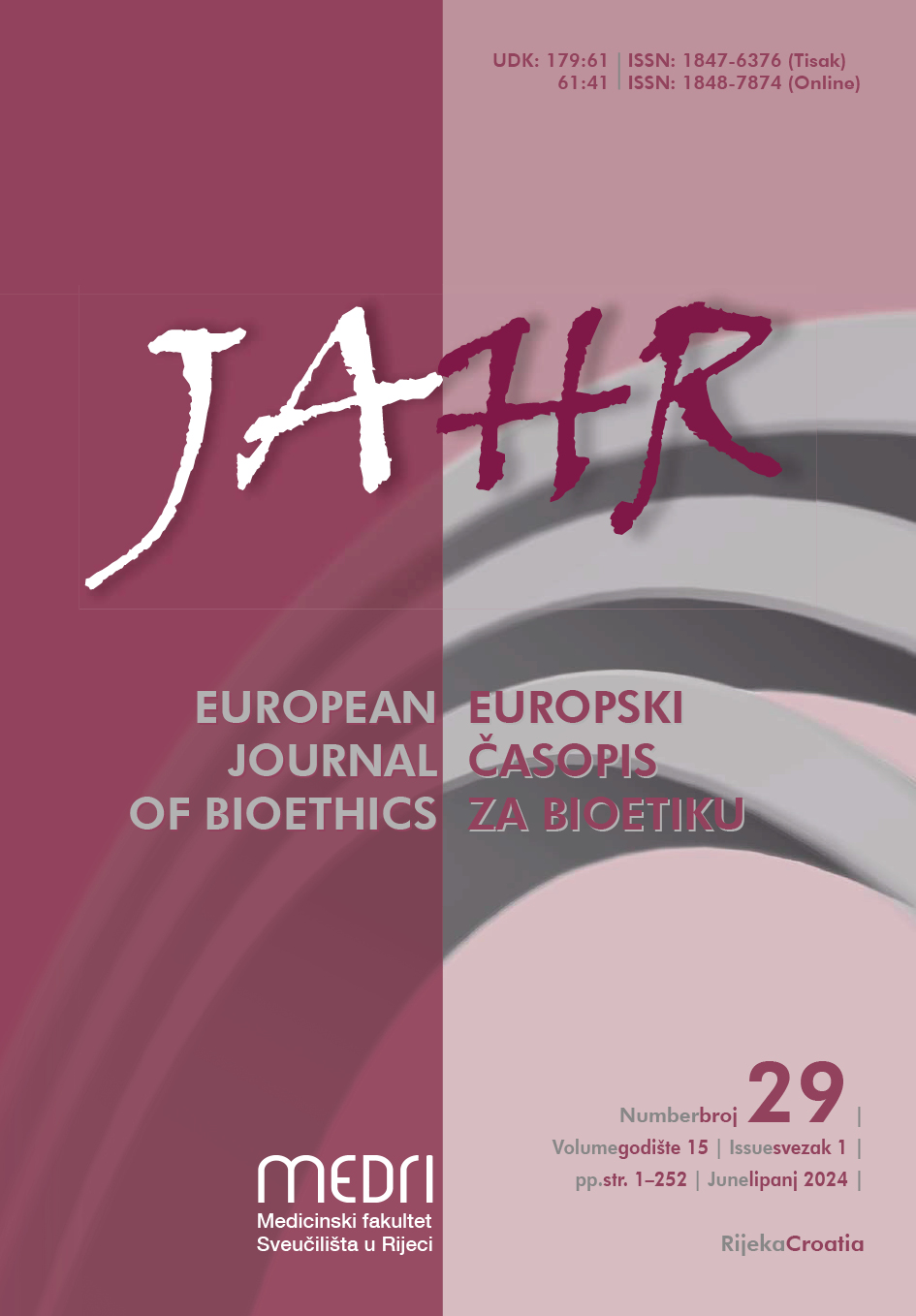‘The Trio-Model’
A new, transformative framework for an old, broken system
Sažetak
https://doi.org/10.21860/j.15.1.3
In light of the United Nations’ aim to achieve the Sustainable Development Goals (SDGs) by 2030 and recognizing that the international community is nowhere near to achieving this aim, this paper argues for a change in practice and perspective regarding animals used for food, particularly those animals used in the industrial animal agriculture industry, and consequently calls for a transformative change in human-animal relationships. Using the global practice of factory farming as a case study, the paper aims to show that the interests of humans, nonhumans, and the environment overlap considerably and that the current anthropocentric stance, that provides the ethical framework for the SDGs, undermines itself in its attempt to meet the needs of present and future human beings whilst considering human interests only as of direct moral concern. Drawing on the concepts of “one health” and “doughnut economics”, the paper concludes with an urgent call for a more inclusive biocentric approach to global environmental problems, health, and disease. Such an approach should recognize the good of other than human beings in and of itself, and be guided by relevant anti-speciesist egalitarian principles and practices. This framework of biocentrism, doughnut economics, and one health the authors term the ‘trio-model’, for short.
Preuzimanja
Objavljeno
Broj časopisa
Rubrika
Licenca
Autori koji objavljuju u ovom časopisu slažu se sa slijedećim uvjetima:
- Autori zadržavaju autorska prava i dodjeljuju pravo časopisu na prvo objavljivanje uz istovremeno uvažavanje Creative Commons Attribution License koje omogućava drugima da dijele rad uz priznavanje njegova autorstva i početne objave u ovom časopisu.
- Autori mogu sklopiti zasebne, dodatne ugovorne dogovore o neekskluzivnoj distribuciji objavljene verzije rada (npr. objaviti ga u repozitoriju institucije ili ga objaviti u knjizi), uz priznavanje da je njegova početna objava bila u ovom časopisu.
- Autorima je dopušteno i ohrabruje ih se da objavljuju svoje radove putem društvenih mreža (npr. u repozitoriju institucije ili na njenim internetskim stranicama) prije i za vrijeme prijave obzirom da to može doprinijeti produktivnoj razmijeni te ranijeg i većeg citiranja objavljenog rada (Vidjeti: The Effect of Open Access).



